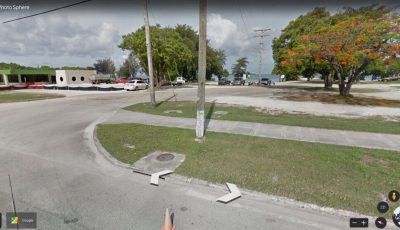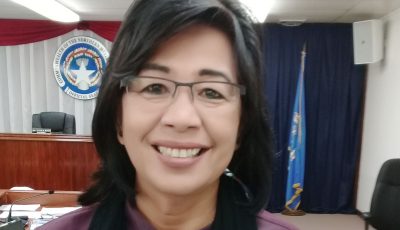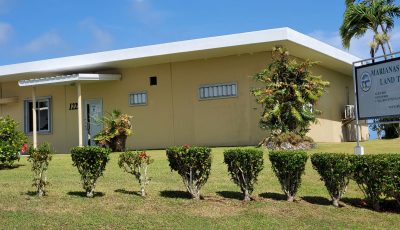Audit finds DPL noncompliant with law on operations fund
An auditing firm’s independent report found that the Department of Public Lands is noncompliant with a public law that requires the creation of a DPL Operations Fund. Without that, DPL is unable to produce reliable and relevant financial information, the audit said. In response, DPL Secretary Marianne Concepcion-Teregeyo said DPL and the Department of Finance are now working on creating a separate operations fund account to have DPL revenues collected deposited into this account.
The Office of the Public Auditor hired Deloitte to audit DPL’s internal control over financial reporting and its compliance for the fiscal year that ended on Sept. 30, 2019. The Deloitte report, which OPA released last Dec. 22, said the results or their tests disclosed instances of noncompliance or other matters that are required to be reported under Government Auditing Standards.
According to Deloitte & Touche LLC, the DPL Operations Fund—as required by Public Law 15-02—shall be maintained by Finance and DPL is required to deposit all revenues it receives in such Fund and all of DPL’s operational expenses shall be paid from that Fund.
DPL’s noncompliance with P.L. 15-02 was among certain deficiencies in internal control that the auditor considers to be material weaknesses.
Deloitte said an effective system of internal control over financial reporting includes maintenance of a separate general ledger system that records transactions and generates reliable and relevant financial information. Deloitte said DPL has not maintained a separate general ledger system since fiscal year 2007. Specifically, the auditor said, revenues received by DPL are not deposited in the DPL Operations Fund. The auditor said a general ledger for DPL transactions is maintained by Finance, which is not reconciled or monitored by Finance or DPL. Deloitte said cash transactions, received and disbursed at DPL, are summarized in cash receipt and disbursement journals, which are not recorded in the Finance general ledger.
Deloitte said journal vouchers posted to Finance’s general by Finance personnel are not approved by DPL management. The auditor said receivables, accounts payable, accruals and unearned revenues are not reconciled in Finance’s general ledger.
The auditor said DPL did not implement available system controls over the financial reporting process and monitoring control procedures are not established to determine the accuracy and completeness of disbursements processed at Finance.
The auditor recommended that DPL comply with P.L. 15-02 and monitor and reconcile transactions with Finance. The auditor also recommends that DPL establish monitoring control procedures over disbursements, perform periodic reconciliations with Finance to verity the accuracy and completeness of disbursements processed and reconcile balances maintained in Finance’s general ledger.
These material weaknesses are not new and were reported as findings in the audits of DPL from fiscal years 2010 through 2018, Deloitte noted.
In DPL’s responses to the audit, Concepcion-Teregeyo said personnel and other operation expenditures are monitored and reconciled every time reports are received from Finance.
She said payroll timesheets are verified by the DPL timekeeper, certified by the DPL Finance director and approved by her and the Finance and Accounting director prior to processing checks by the CNMI Treasury.
She said vendor and payroll checks are reconciled against DPL reports to ensure they are accurate and properly accounted for and reimbursed to the CNMI General Fund biweekly for payroll and the 15th and 30th for other operation expenses.
Concepcion-Teregeyo said adjustments and requests for supplemental checks are verified by the DPL Finance director and approved by her with justification before being submitted to the CNMI Finance director.
On revenue and receipts, Deloitte said tests of 79 cash receipts for long-term lease contracts of public lands and temporary permits noted that audited financial statements were not provided for 23 receipts related to contracts and permits requiring such documents.
Deloitte said financial statements were not provided for six receipts related to contracts and permits requiring such documents.
The auditor said that for eight receipts, financial statements were not provided within 45 days after the end of the calendar year.
The auditor said a signed permit extension was not provided for the lease period tested.
Deloitte said a permit has not been renewed since 2016 for a lessee, which is under holdover status.
Deloitte said the cause of the condition is the lack of monitoring procedures to determine which contracts and/or permits require audited financial statements or financial statements.
The auditor said permits are not timely reviewed for expiration.
Moreover, the auditor said, lease agreements should be reexamined for consistency in meeting required payment terms.
The effect of the condition, Deloitte said, is the potential underpayment of lease revenues and collections on invalid permits and leases.
Deloitte recommends that management update lease contracts and permits and enforce lease provisions.
The auditor said monitoring procedures for contract and/or permits that require financial statements or audited financial statements was reported as a finding in the audits of DPL for fiscal years 2010 through 2018.
In DPL’s response to the issue of 23 receipts, Concepcion-Teregeyo cited several reasons such as audit was ongoing and was delayed due to the COVID-19 pandemic, submitted financial statements that is unaudited by a public accountant certified in the U.S., and some already submitted financial statements.
Concepcion-Teregeyo provided explanations and justifications for some of these findings.



























